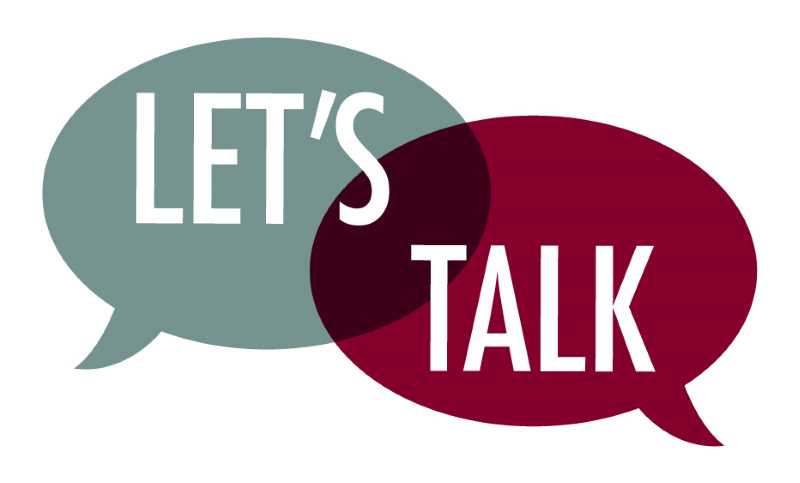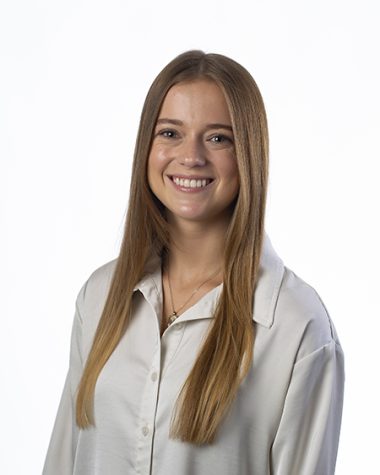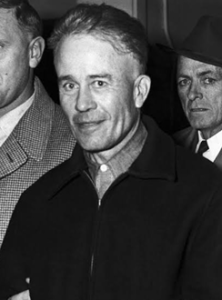UWL student experiences with the Counseling & Testing Center
May 14, 2021
The Counseling and Testing Center (CTC) is a service provided by the University of Wisconsin-La Crosse to help students. According to the CTC, “our mission is to promote students’ emotional, academic, social, and cultural growth through counseling, crisis intervention, and outreach within an atmosphere of confidentiality and inclusivity.”
The CTC offers an urgent care session when in an immediate mental health crisis, single session, triage, and “Let’s Talk” clinics when not in crisis. There are single session clinics, group counseling services, and consultations and referrals.
The Racquet Press spoke to two UWL students to discuss their experiences with the CTC.
Cali Ogurek
Ogurek is a fourth-year UWL student double majoring in women, gender, and sexuality studies and cultural anthropology.
Ogurek explained that for herself, using the CTC felt like jumping through so many hoops. “I think I have ADHD so I thought I could go there to get diagnosed. They gave me a huge packet to take home. I never did the packet, I think I have ADHD, obviously I’m not going to sit down long enough to focus on filling out this whole packet. I still haven’t been diagnosed and I still struggle with focusing,” said Ogurek.
“I was going to set up counseling, but I had heard so many bad things about counseling on campus that I reached out to a therapist off-campus and started seeking therapy outside of campus, it’s much more professional than the stories I’ve heard of what people have been experiencing on the CTC.
Following the death of UWL student Jules Joosten, students organized a time and place to give students the space for grieving and protesting what they stated was a gross mishandling of her death. Ogurek shared this information on her Snapchat story to increase awareness surrounding mental health during the pandemic and online school.
Following her Snapchat story post, multiple UWL students started messaging her complaints about the CTC and the university as a whole. Ogurek continued to share these testimonies on her story and continued to get responses. Ogurek got permission to share the following testimonies regarding experiences with the Counseling and Testing Center:
“It took three and a half months for me to get into counseling services and the counselor verbatim said, ‘I don’t think anyone here can help you and it took her less than half an hour to determine I was beyond help, even though I was going there for anxiety.”
“I had to go to Mayo Clinic for a while and they specifically told me not to go to the counselors on campus.”
“The counseling services is a joke. They made me feel worse about my mental health issues and after the first session my counselor told me that they don’t think they can help me much there.”
“My freshman year I went there and they invalidated all my feelings and only focused on the fact that I drank too much.”
“My counselor dropped me because she couldn’t offer me the help I needed.”
“Speaking from first-hand experience, I started attending a counselor that UWL offered and my counselor forgot to schedule my next appointment. I know that they get busy and forget, but this made me feel as if I weren’t important enough to remember. I’m definitely turned off from reaching out to them again.”
“I was once told I wasn’t bad enough to need medication. Went elsewhere and turns out I have a personality disorder.”
“Told a UWL counselor that I was feeling unsafe from myself and others on campus, and when I missed my appointment once because of an immobilizing panic attack, I never heard a single thing from them. Not that day or ever again.”
“I started therapy this summer at UWL and my counselor skipped multiple appointments without explanation, and now I jump through hoops going to therapy that my insurance will pay for.”
“They told me my problems were too insignificant for one-on-one therapy and that I should do group therapy. They then proceeded to talk about how I was doing things wrong in my life.”
“I went to them my freshman year for ADHD testing, this took the whole day and 7 1/2 hours to complete. I had to have three references that had so much paperwork regarding me growing up and ADHD in my childhood years all the way up until I turned 18. After the hours of testing, my counselor called me back and explained that she wasn’t diagnosing me with ADHD. I later went to a psychologist who was easily able to diagnose me and explain to my parents that I had a severe case and how not being medicated has made me struggle in silence my whole life. Since being diagnosed, medication has changed every aspect of my life in a positive way. I wish I could’ve been heard and listened to by my school instead of waiting months to be seen somewhere off campus.”
Anonymous
This source chose to stay anonymous because this experience is personal and private. They are a second-year exercise and sport science major attending UWL because it’s very advanced and appreciated programs within the health fields.
“This semester I’ve had really bad burnout, so I reached out to the counseling center. My first call was to discuss things going on in my life and what stressors I had. My second call was my counselor giving me advice on counseling options. We planned on meeting two weeks later, which I thought was a really big gap. Two weeks went by, but I never received a confirmation text or email, and nothing in my UWL health portal app said anything about upcoming appointments.”
The source explained that a day after the scheduled appointment that didn’t happen, made the source feel “not important enough to remember.”
“I think that when you’re in a really bad mental state, you already think pessimistically and negatively, so that didn’t help. It’s also really hard to want to reach out and get better, so when you do and get disappointed like that, it’s not the greatest feeling in the world,” said the source.
The counselor reached out a week later to say they missed the appointment on the schedule, however, the source never responded because they didn’t want to put in the energy again to go forward with it.
When reflecting on the second phone call with the counselor, the source said, “my counselor kept telling me to join more organizations to meet new friends, but I felt at that time that I didn’t want to put my energy into making new friends, I wanted it to be for school and what I could for work.”
“I’ve been having a hard time attending my classes, whether in person or on zoom, so when I told my counselor that, she said it’s okay to skip my classes, but that didn’t feel settling to me because that should have been my main priority. I wish she would’ve given me the advice to find the motivation to go to class.”
Our source does not plan on reaching out to the CTC again and has started looking at private counselors around the La Crosse community.
If you or someone you know is struggling with mental health, please use these resources:
- Student Life at [email protected]
- Residence Life at [email protected] or 608.785.8075
- Office of Multicultural Students Services (OMSS) at [email protected] or 608.785.8225
- Campus Climate at [email protected]
- Student Support Services at [email protected]
- Pride Center at [email protected]
- ACCESS Center at [email protected]
- Upward Bound at [email protected]
- Faculty and staff who need support should use the Employee Assistance Program.
If you’re concerned about your own well-being or that of another person, please know that you are not alone. There are resources available 24/7. Specific 24-hr resources include:
- La Crosse County Mobile Crisis: 608.784.HELP (4357)
- Suicide Prevention Lifeline 800.273.TALK (8255) (veterans press 1)
- Trevor Project: 1.866.488.7386
- Crisis Text Line: Text “HOPELINE” at any time to 741741
- 211 (Great Rivers 211)
- 608.789.9000 (University Police)
- 911







